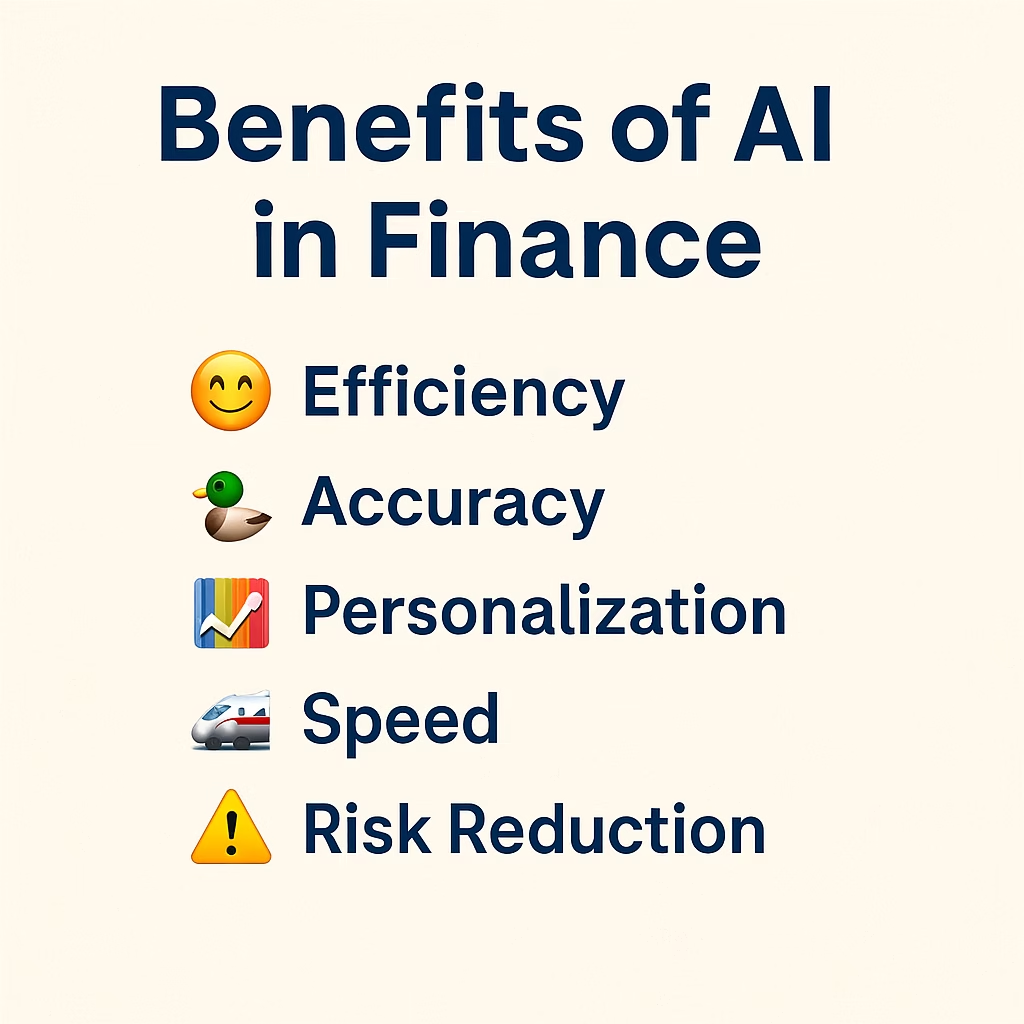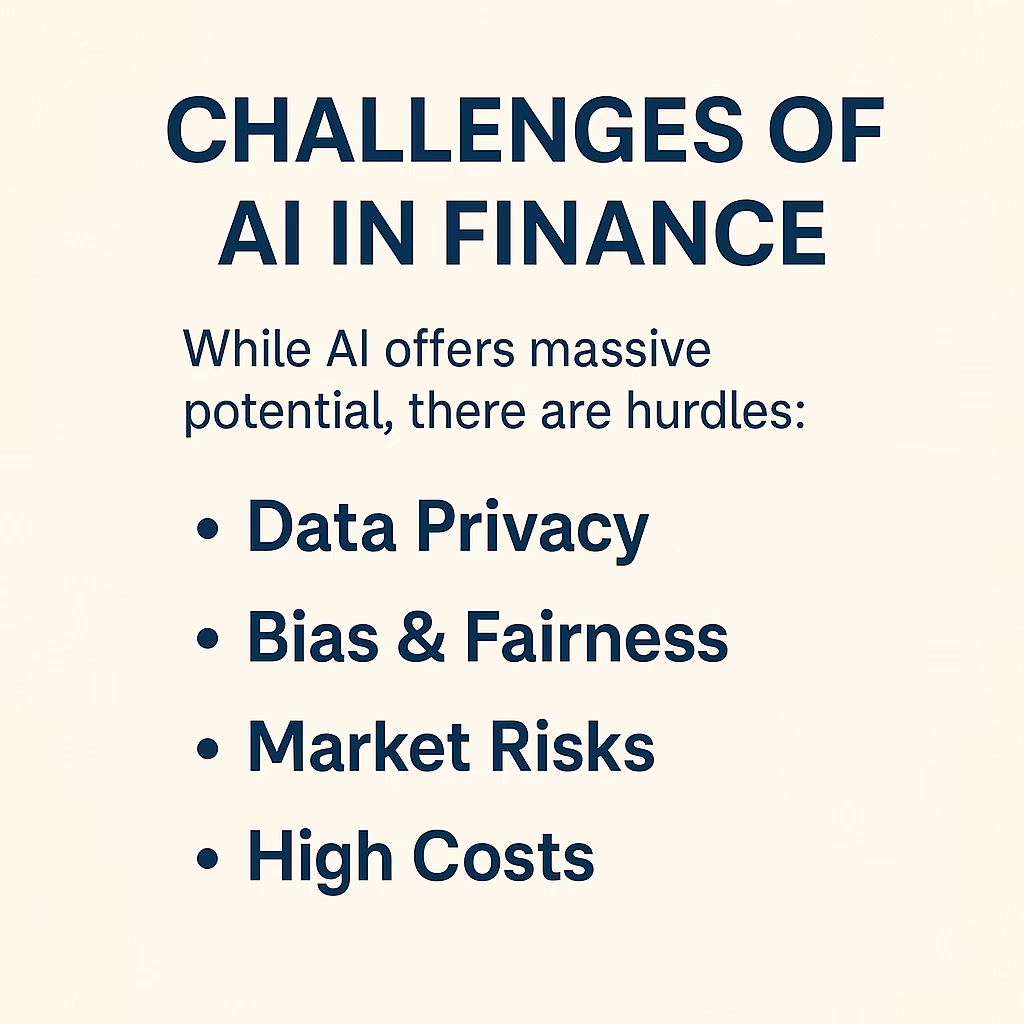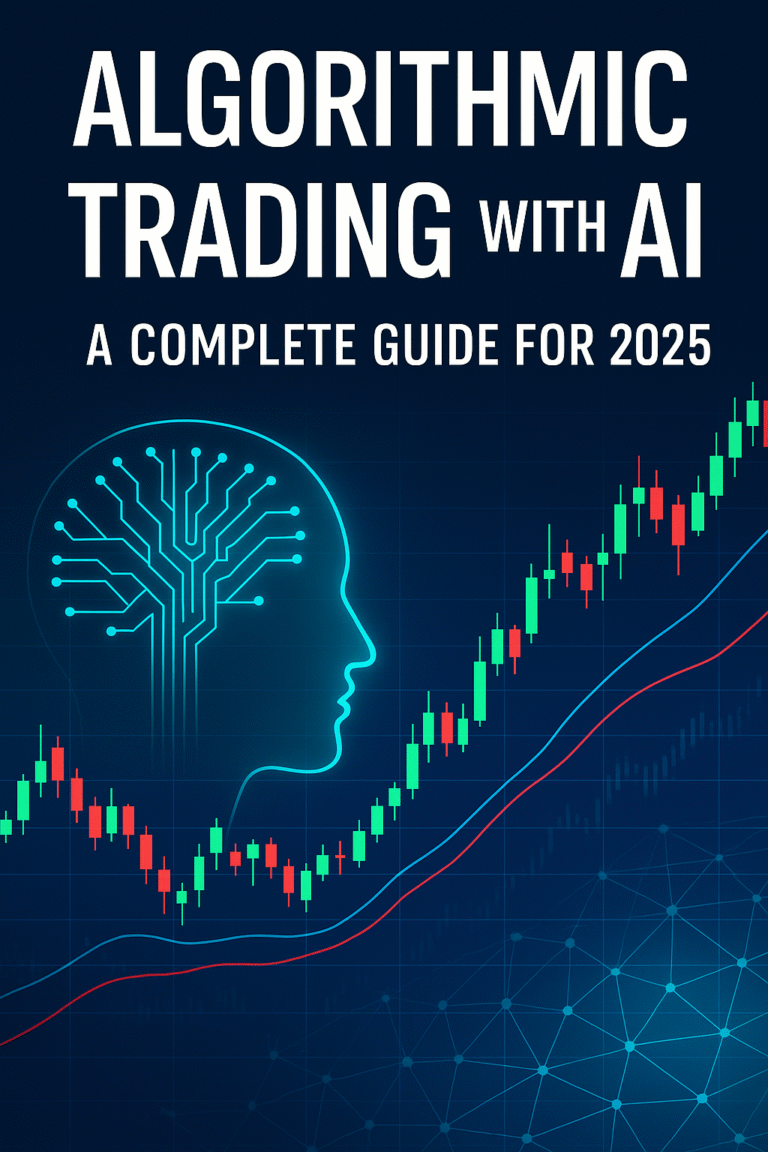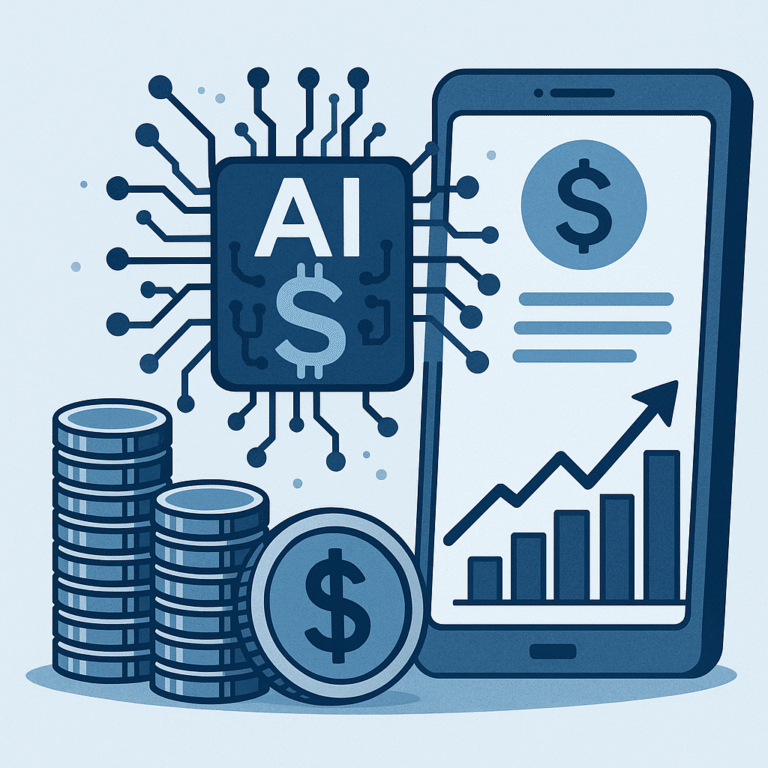AI in Finance: Real-World Applications You Need to Know
Artificial Intelligence (AI) is no longer just a futuristic idea—it’s already transforming how we bank, invest, and manage money. From fraud detection to personalized investment strategies, AI in finance is making processes smarter, faster, and more secure.
In this blog, we’ll explore the real-world applications of AI in finance, practical examples, and what the future of financial technology looks like.

1. Algorithmic Trading & Investments
Financial institutions are turning to AI-powered systems for high-frequency trading and portfolio management.
- Hedge funds and investment firms like BlackRock’s Aladdin use AI to analyze news, trends, and market data to predict market movements.
- Robo-advisors such as Betterment and Wealthfront are providing AI-driven investment advice to everyday investors.
- Read more Algorithmic Trading with AI: A Complete Guide for 2025
👉 Related: Can AI Really Predict the Stock Market? Here’s the Truth
2. Fraud Detection & Risk Management
Fraudulent transactions are one of the biggest threats in finance, and AI is the first line of defense.
- AI models scan millions of transactions in real time, spotting suspicious activities before they cause damage.
- Mastercard and other financial giants use generative AI to simulate fraud scenarios, improving detection accuracy.
This reduces financial losses and builds customer trust.
3. AI in Credit Scoring & Loan Approvals
Traditional credit scores often exclude people with little credit history. AI fixes this by:
- Using alternative data sources (rent payments, utility bills, mobile usage).
- Providing a more accurate picture of creditworthiness.
- Allowing banks and fintechs to serve underserved populations.
Startups like Zest AI and Scienaptic are leading this credit revolution.
4. AI-Powered Customer Service
Chatbots and virtual assistants are everywhere in modern banking.
- Bank of America’s Erica has answered billions of customer queries, handling everything from spending insights to transaction disputes.
- AI assistants reduce wait times, improve accuracy, and make banking available 24/7.
Generative AI is now making these chatbots more conversational and human-like.
5. AI in Forecasting & Financial Planning
Companies are embracing AI for smarter financial predictions:
- Predictive analytics help CFOs forecast revenues, costs, and risks.
- AI-driven scenario modeling supports better decision-making.
- Automated reporting saves time while reducing human error.
This allows businesses to be proactive instead of reactive.
👉 You may also like: Cut Costs, Grow Savings: AI Budgeting Tools
6. AI in Compliance & Regulation
Banks face strict regulatory requirements, and AI helps them stay compliant.
- AI systems monitor transactions for money laundering (AML) or suspicious activity.
- Continuous auditing reduces costs and time compared to traditional audits.
- Regulators are even exploring AI to detect financial misconduct.
7. AI in Personal Finance
AI is also helping individuals manage money better:
- Apps like Cleo and Mint use AI to categorize spending and suggest budgets.
- AI-powered tools act as personal financial advisors, nudging users to save or invest.
- Some apps provide real-time financial coaching based on spending patterns.
- Check out Best AI Financial Advisor Apps
8. AI in Insurance & FinTech Innovation
Insurance companies and fintech startups are rapidly adopting AI:
- AI claims automation speeds up the approval process.
- Fraudulent insurance claims are flagged faster with machine learning.
- Personalized premiums are calculated using AI risk analysis.
In fintech, AI powers digital lending, payments, and wealth management platforms.
Benefits of AI in Finance

- Efficiency: Automates repetitive tasks, saving time and money.
- Accuracy: Reduces human error in fraud detection and trading.
- Personalization: Offers tailored banking and investment services.
- Speed: Processes financial data in real-time for faster decisions.
- Risk Reduction: Predicts financial threats and reduces exposure.
👉Discover the Most Popular AI Chat Apps in 2025
Challenges of AI in Finance

While AI offers massive potential, there are hurdles:
- Data Privacy: Sensitive financial data must be protected.
- Bias & Fairness: Algorithms can unintentionally discriminate in lending decisions.
- Market Risks: Over-reliance on AI trading can cause flash crashes.
- High Costs: Smaller banks and fintech startups face challenges in implementing advanced AI.
Future of AI in Finance (2025 & Beyond)
- AI-Powered DeFi (Decentralized Finance): Smarter smart contracts and risk analysis for blockchain-based financial systems.
- Quantum AI in Trading: Supercomputing + AI for ultra-accurate market predictions.
- Emotion AI in Customer Service: Banks may use sentiment analysis to provide empathetic financial advice.
- Hyper-Personalized Financial Planning: AI tools that adapt to every individual’s financial goals in real time.
💡 Want to explore AI apps for your personal finance? Check out our guide: Best AI Apps to Manage Money in 2025.
Conclusion
AI in finance is no longer optional—it’s essential. From trading and fraud detection to personal budgeting and insurance, AI applications are transforming every corner of the financial industry.
As technology evolves, institutions that leverage AI responsibly will lead the way in building smarter, safer, and more inclusive financial systems.
Frequently Asked Questions (FAQs) About AI in Finance
What is AI in finance?
AI in finance refers to the use of artificial intelligence technologies—like machine learning, natural language processing (NLP), and predictive analytics—to improve financial services. It is applied in areas such as fraud detection, credit scoring, algorithmic trading, risk management, customer support, and wealth management.
How is AI used in fraud detection?
AI systems analyze large volumes of transactions in real time to spot unusual patterns or anomalies. For example, if your credit card is suddenly used in a foreign country while you are shopping locally, the system may flag it. This ability to detect abnormal spending behaviors makes fraud prevention faster and more accurate than traditional methods.
What are robo-advisors in finance?
Robo-advisors are AI-driven platforms that provide automated financial advice and investment management. They use algorithms to assess a user’s risk tolerance, goals, and preferences to recommend personalized investment strategies. Popular examples include Betterment, Wealthfront, and Vanguard’s Personal Advisor Services.
Can AI replace human financial advisors?
Not entirely. While AI-powered robo-advisors can handle basic portfolio management, risk assessment, and financial planning, human advisors still play a key role in handling complex scenarios such as estate planning, tax strategies, and emotional decision-making. Instead of replacing humans, AI complements their work.
How does AI improve credit scoring?
AI looks beyond traditional credit scores by considering alternative data sources such as online shopping behavior, utility payments, and even social media activity. This makes credit scoring more inclusive, especially for people with little or no formal credit history.
Is AI safe to use in financial services?
AI is safe when used responsibly, but it raises concerns around data privacy, cybersecurity, and algorithmic bias. Financial institutions must follow strict compliance regulations and ensure AI models are transparent, fair, and secure.
What are the biggest benefits of AI in finance?
- Faster decision-making (loan approvals, trading, risk analysis)
- Enhanced security (fraud detection and prevention)
- Personalized services (tailored banking and investment advice)
- Cost savings (automation of manual processes)
- Higher accuracy (reducing human errors in data analysis)
Which companies are leading in AI finance adoption?
- J.P. Morgan – Uses AI for fraud detection and contract analysis.
- BlackRock (Aladdin platform) – AI-powered investment risk management.
- Mastercard & Visa – Real-time fraud detection using AI.
- Fintech startups like Plaid, Zest AI, and LenddoEFL are also driving innovation in lending and payments.



One Comment